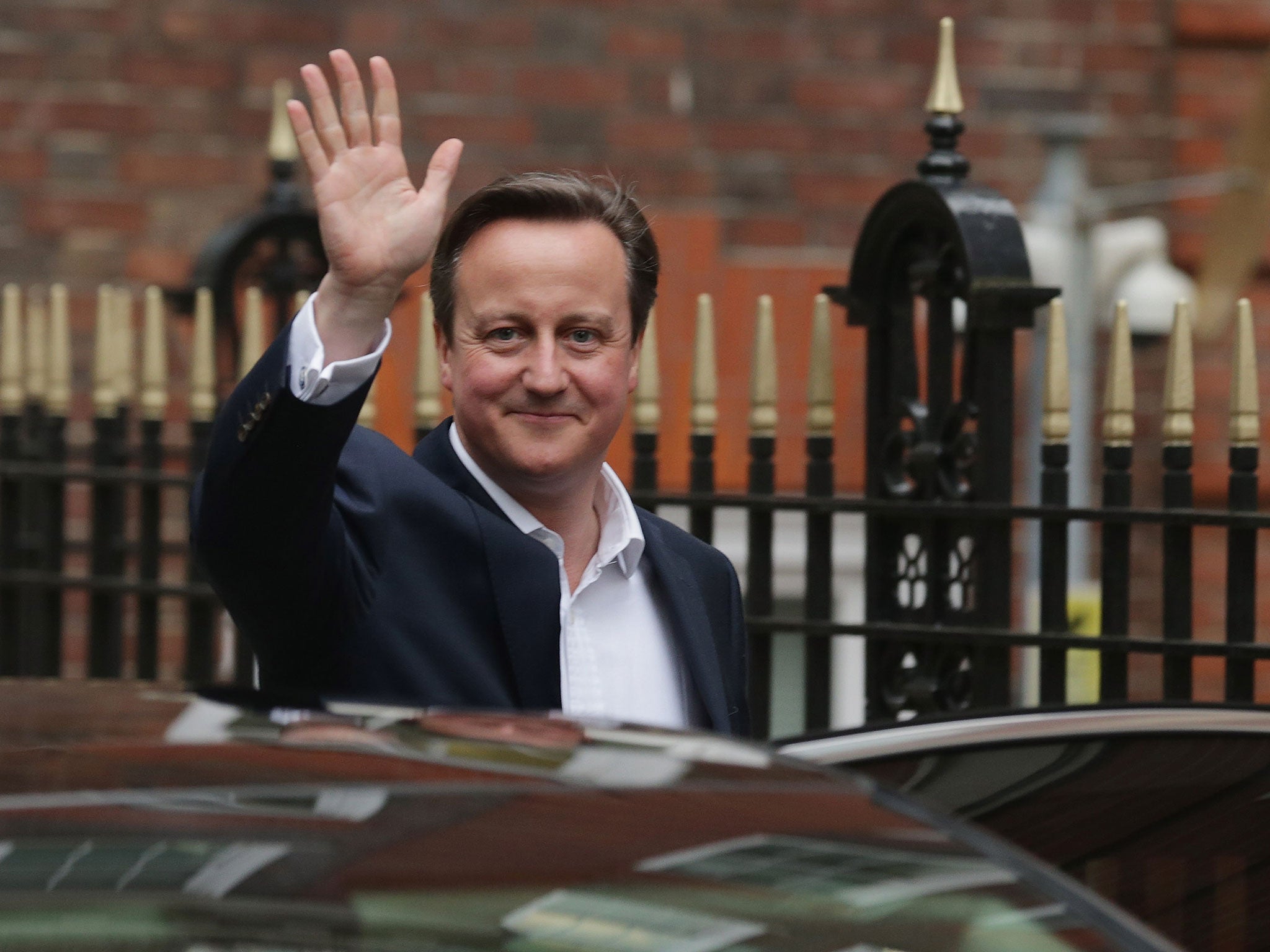Pollsters' failure to predict Tory general election victory blamed on 'herding'
Statisticians conclude fear of producing sharply different results from their rivals could have influenced polling companies

The spectacular failure of the polling companies to forecast David Cameron’s general election victory could have been caused by their fear of producing sharply different results from their rivals, statisticians conclude in a new report.
The pollsters might have fallen victim to “herding”, when they alter their sampling formulas to ensure their findings are broadly in line with other companies.
The pack-mentality phenomenon has been observed in the United States, where variations in results can narrow as election day approaches, suggesting companies do not want to remembered for a rogue survey on the eve of polling.
An inquiry was set up to examine why pollsters consistently forecast a dead heat between Labour and the Tories, leading to another hung parliament, instead of the Conservatives’ narrow overall majority.
Predictions that either Mr Cameron or Ed Miliband would be forced into a power-sharing deal with one or more of the smaller parties dominated coverage in the run-up to polling day on 7 May.
The first sign that Mr Cameron was heading back to Downing Street came when voting ended at 10pm and an exit poll put the Tories in a clear lead.
The companies’ inability to gauge the political temperature – their worst failure since the 1992 general election – prompted an immediate investigation.
In its preliminary findings, the inquiry team concluded that the main reason for the miscalculations was that poll samples did not reflect the electorate as a whole. The samples contained too many Labour voters and too few Tories, and failed to make adjustments for the imbalance.
The inquiry team said it was surprised by the lack of variation between the polls’ findings, and said it was unable to rule out the conclusion that “herding” helped to create a statistical consensus. It stressed that the possibility that herding occurred did not imply malpractice on the part of polling organisations.
The independent inquiry was set up following last May’s election by the British Polling Council and the Market Research Society.
It concluded that other potential reasons for the polling blunders – including miscalculating turn-out, inaccurately factoring in postal votes and overseas votes – had, at most, a modest impact.
But the inquiry was unable to judge whether a last-minute swing to the Tories was responsible for the polling companies getting it wrong. If such a swing happened, it accounted for only a small part of the errors, it said.
The inquiry’s chair, Patrick Sturgis, professor of research methodology at the University of Southampton, said: “The ways in which polling samples are constructed was the primary cause of the polling miss.”
The panel will make a series of recommendations for avoiding a repeat of the mistakes when it publishes its full report in March.
The Market Research Society said: “We are committed to working with our members to facilitate any necessary changes that will ensure that identified shortcomings are not repeated in the future.”
Last week a separate analysis published by NatCen Social Research also concluded that the pollsters’ sampling techniques – which depended on internet panels and telephone polls – were fundamentally flawed. It dismissed theories about “shy Tories”, voters misleading pollsters or an election-day shift from Labour by pointing to post-election surveys that still suggested a hung parliament.
Subscribe to Independent Premium to bookmark this article
Want to bookmark your favourite articles and stories to read or reference later? Start your Independent Premium subscription today.

Join our commenting forum
Join thought-provoking conversations, follow other Independent readers and see their replies